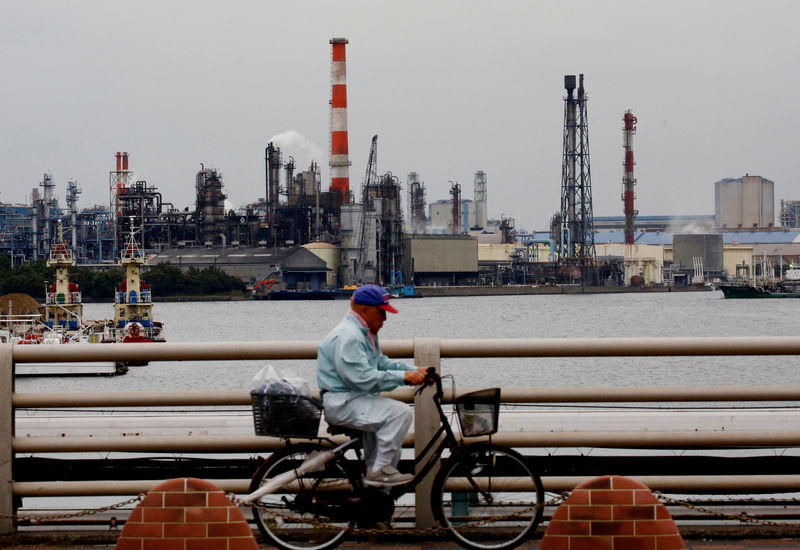TOKYO (Reuters) - Japanese manufacturing activity contracted at a slower pace in March than the previous month, but output fell at the sharpest rate in nearly three years, a private business survey showed on Monday, reflecting weak demand at home and abroad.
The latest survey bolstered the view the Japanese economy, the world's third largest, is hitting a soft patch as the Sino-U.S. trade war dents global demand, dealing a blow to export-reliant Japan and its business and consumer confidence.
The final Markit/Nikkei Japan Manufacturing Purchasing Managers' Index (PMI) was a seasonally adjusted 49.2, up a tad from February's final 48.9, which was also the flash reading for March.
The index was below the 50 threshold that separates contraction from expansion for the second consecutive month.
The survey suggests the worst quarterly performance in the manufacturing sector in January-March since the second quarter in 2016, as Japanese manufacturers face a "fiercely challenging" situation, said Joe Hayes, economist at IHS Markit, which compiles the survey.
"The likelihood of the negative trend in output being stymied any time soon appears slim, with demand for goods from both domestic and international sources waning further," he said.
"Asian goods producers face headwinds from slowing growth in Europe and China, while global trade risks are yet to be mitigated by a breakthrough in US-Sino relations."
The output component of the final PMI index stood at 47.0, just above a preliminary 46.9 but still down from a final 47.4 in February to show the fastest contraction since May 2016.
New orders from both domestic and international clients fell at the fastest pace since June 2016, the final survey showed.
New export orders fell for a fourth straight month in March, though at a slower pace. The decline contributed to pushing the rate of job creation to the weakest since late 2016, it also showed.
The trade war between the world's two largest economies has also had a negative effect on Japan's domestic growth, as a slowing Chinese economy curbed demand for mobile phone parts and chip-making equipment from Japan.

Growing uncertainty over the economic outlook leaves room for Prime Minister Shinzo Abe to put off a national sales tax hike - to 10 percent from 8 percent - planned for October. But that would put much-needed fiscal reform on the backburner.